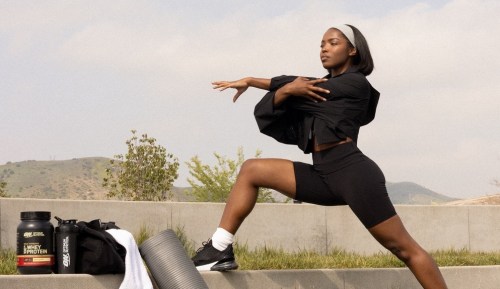Pros weigh in on whether having workout metrics are harmful or helpful
Are having workout metrics in front of you helping or hurting your fitness routine? Here's what pros have to say about it.

Thanks to technology, we now have more access than ever to information about how our bodies are performing during workouts. In addition to having our heart rates (and more) strapped to our wrists, many fitness classes now also track our data for us, and let us know how we stack up against the people around us. In Orangetheory, a board that displays “Splat Points” tells you (and the rest of your class) how hard you’re working based on your heart rate, and at spin studios like FlyWheel and Swerve rank your performance against that of the people riding next to you. For some people, this can be motivating, and inspire a healthy sense of competition that gets them to push harder. But for others, it can have the complete opposite effect.
Case in point: Imagine you’re halfway through a workout class, dripping in sweat and hopped up on endorphins. You feel strong, empowered, and like you’re generally killing it. But then, you look up at the ‘leader board’ only to discover that you’re in last place. Let me tell you (because it’s happened to me, more than once), nothing can get those endorphins crashing down quite like finding out you’re the worst one in the room.
“Metrics are helpful to know where you’re starting from, and to have some sort of measurement of how you’re improving,” says Janine Delaney, PhD, psychologist and fitness expert. “But a lot of people that tend to take metrics overboard, and when that happens, it can definitely be detrimental.” As a general rule, you should be using the metrics presented in a workout class as a means of tracking your own progress, not as a way to compare yourself to the person on the treadmill next to you. “You have to challenge yourself and be your best you—not someone else’s,” says Delaney.
When you’re in a class, having performance information in front of you is a great way to make sure you really are giving your workout 100 percent. Knowing where your baseline is, if you can see yourself slacking it may inspire you to push just a little bit harder and ultimately get the most out of your workout. And over time, pros agree that this can help you build strength and endurance, because when you know where you’re starting from, you’ll be able to lay out better markers for where you want to go and measure your improvement as you work toward your goals.
“Having concrete goals, even small ones, gives us milestones to celebrate…. and celebrating even the littlest wins helps to build up momentum,” says Swerve instructor Eric Coles. “A lot of people limit themselves and don’t know what they’re truly capable of, but with metrics, you can see yourself improving over time and breaking through those limits you thought you had. When you see that in your workouts, it unlocks a whole new mentality across all aspects of life. Metrics give us the ability to better quantify our success and effort, and allow us to get specific with our goal setting.”
Still, all of this can be measured by way of a fitness tracker on your wrist, which tracks your data and your data only, and even those numbers shouldn’t be the end-all, be-all of your fitness journey. “The quantitative, numbers piece will help you, and then then the more you can add a qualitative component to it,” says Hilary Cauthen, PsyD, an Austin-based psychologist, who suggests keeping a journal in which you’re tracking things like how often you’re working out and how you actually feel after you do it. “It’s really important to look at when you’re working out and the distances and time to see those improvements, but also to be sure you’re not getting caught up in the numbers. Sometimes we get these notifications on our wearable devices, or we dive too deep into the data and aren’t able to see the improvement and start judging ourselves.”
So instead of using metrics in workouts to wonder why you aren’t performing as well as the person on the spin bike next to you, use them as a way to perform better than you did yesterday.
This easy tracker hack will ensure you’re always getting your steps in. Plus, why OrangeTheory could be coming to a grocery store near you.
Sign Up for Our Daily Newsletter
Get all the latest in wellness, trends, food, fitness, beauty, and more delivered right to your inbox.
Got it, you've been added to our email list.










